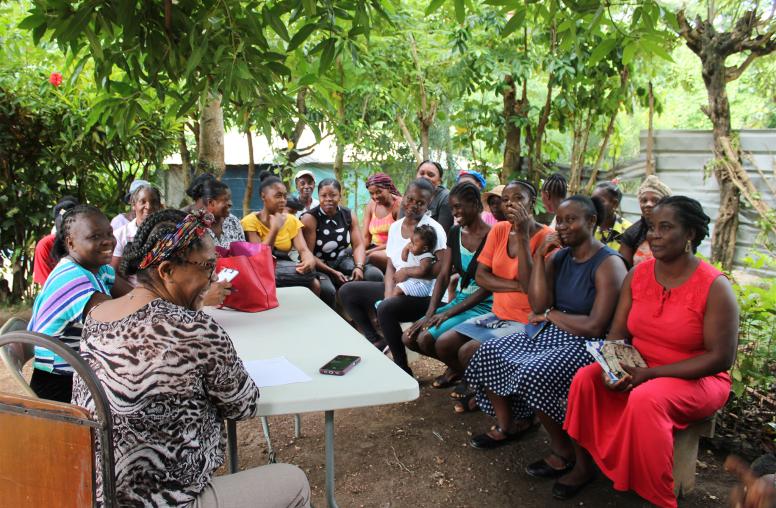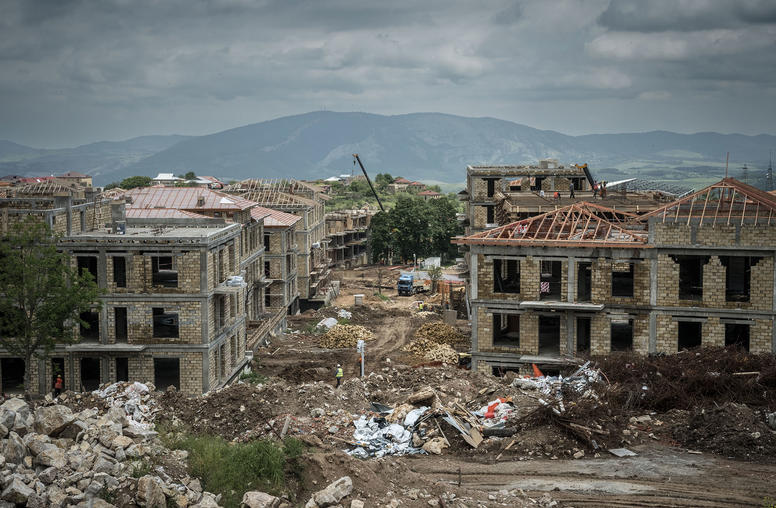 Mediation, Negotiation & Dialogue
Mediation, Negotiation & Dialogue
At the core of the U.S. Institute of Peace’s work are mediation, negotiation and dialogue—each a means of moving parties in conflict toward a mutually acceptable outcome. Dialogues in areas affected by conflict are ways of bridging divides and bringing communities together to heal divisions. Negotiation is a fundamental skill that is at the heart of most of USIP’s conflict resolution training. The Institute provides education and training on mediation, negotiation and dialogue for a range of stakeholders including civil society organizations, youth and others key actors in conflict settings.
Featured Publications

More States Are Vying to Mediate Conflict — What Does it Mean for Global Peace?
Unsurprisingly, the conflicts in Ukraine, the Middle East and Sudan dominated discussions among world leaders at the recent U.N. General Assembly. So did calls to reform and strengthen the international system, reflecting shifting global power dynamics. Diplomatic meetings in New York also revealed how these increasingly complex conflicts and shifting power dynamics are coming together in an emerging trend: a more diverse set of countries striving to mediate conflicts. At the beginning of the week, Ukrainian President Volodymyr Zelenskyy met with Indian Prime Minister Narendra Modi to discuss avenues to peace, building on Modi’s recent trips to Kyiv and Moscow. At the end of the week, Chinese and Brazilian officials co-hosted an event to garner international support for their peace plan for Ukraine, which Kyiv opposes.

Sullivan’s Beijing Mission: Managing Competition Amid Simmering Tensions
President Joe Biden’s top national security aide, Jake Sullivan, met with Chinese leader Xi Jinping last week, along with other top Chinese officials, as Washington and Beijing look to address bilateral tensions. Relations hit one of their lowest points in years in August 2022 after then U.S. House Speaker Nancy Pelosi visited Taiwan and China responded by cutting off bilateral communications on areas ranging from military matters to climate cooperation. But both sides have attempted to pull back from the brink with a series of high-level meetings in the last two years, including between Biden and Xi in November 2023.

En Venezuela, la acción no violenta es clave para una transición democrática negociada
El 28 de julio, Venezuela celebró una de las elecciones más importantes de su historia. La oposición política del país, liderada por María Corina Machado, superó la desilusión popular, las divisiones políticas y un sistema electoral amañado para obtener una aplastante victoria para su candidato de unidad, Edmundo González Urrutia. Según un grupo de la sociedad civil, los cálculos «extrapolados de los recibos oficiales del conteo de votos» de una muestra representativa de centros de votación locales otorgan a González el 66% de los votos. La oposición venezolana respondió al momento con una inspirada campaña prodemocracia.
Current Projects

Haitian Citizen Engagement
USIP’s Haitian Citizen Engagement Project ensures that marginalized communities, particularly in rural Southern Haiti, have a voice in the country’s political transition.

Peacemaking in a Turbulent World: Lessons from Intrastate and Interstate Conflicts
Peacemaking in a Turbulent World answers the following central question: What lessons for effective management of intrastate conflicts emerged from the post-Cold War period that are relevant for managing contemporary conflicts which include intrastate, internationalized (featuring direct engagement by outside powers), and interstate conflicts?

Nigeria Working Group on Peacebuilding and Governance
The Nigeria Working Group on Peacebuilding and Governance is a joint initiative between USIP and senior leaders from Nigerian civil society to promote good governance practices that strengthen the foundations of peace and security for all Nigerians. Using a cohesive, strategic approach to engage in and advocate for peace and security, the working group fosters relationships between citizens and governors, ensuring that citizens' voices impact crucial decisions.